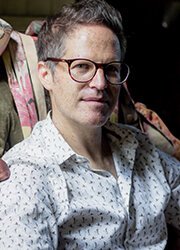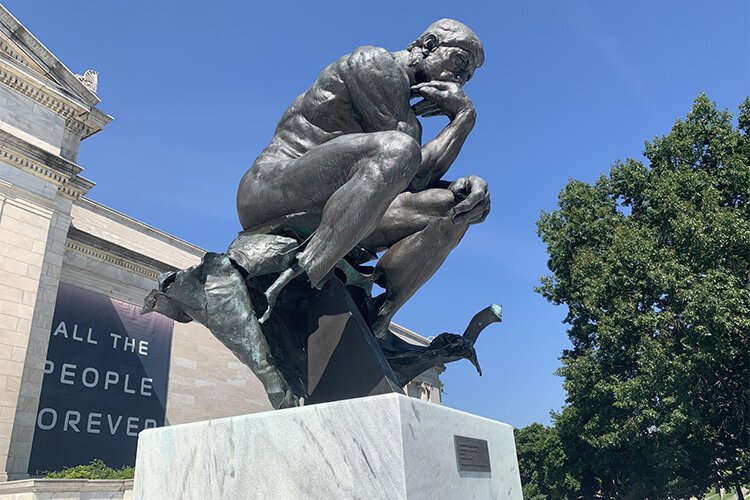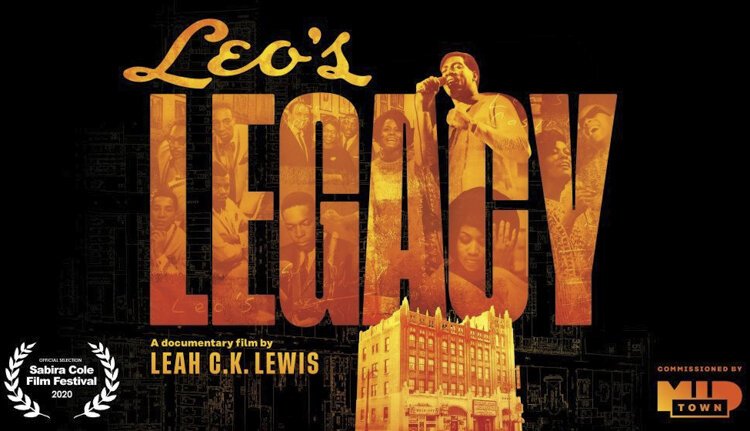Celebrate the February holidays and beat the winter blahs with arts and culture activities
With February being the shortest month of the year there is often a feeling of being pressed for time. Yet often, February’s cold and snowy late winter doldrums also can make the month last forever.
The February holidays remind us to appreciate the transitory nature of the season with Groundhog Day and the Lunar New Year; to rekindle our desire for human contact with Valentine's Day and Fat Tuesday; and to understand our history through the lens of major figures in the Black community with Black History Month.
Thanks to some Cuyahoga Arts & Culture (CAC) grant recipients, people can speed through the remainder of February with events to satisfy the longing the month brings.
“These events can help you break out of your usual winter routine or connect with and celebrate Black History this month, and every month,” says CAC executive director Jill Paulsen. “We seek to find meaning in these times, and connection, even if it is virtual for a little while longer.”
The event round up below is but a sampling of Northeast Ohio offerings to help shake the winter blahs and deepen your appreciation for February's gifts.
“Though we can’t be together in-person right now, there are hundreds of exciting virtual events taking place that you can enjoy from your home," says Paulsen. “We encourage people to continue to support CAC-funded organizations in new ways this month.”
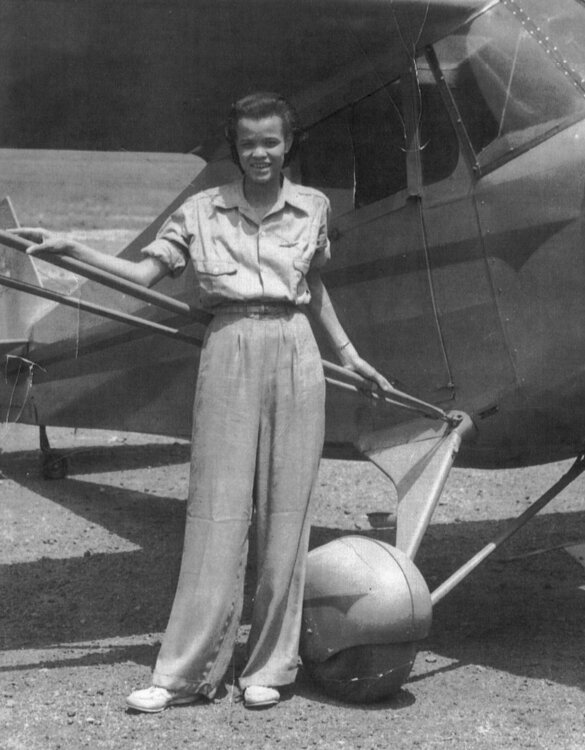 Dr. Donna Whyte’s mother, Dorothy L. McIntyre, was a shaping force, breaking through stereotypes of what women could achieve. She is featured in her virtual talk “America, Race and Me”, hosted online by the Shaker Historical Society on Thursday, Feb.Racial equity in Northeast Ohio
Dr. Donna Whyte’s mother, Dorothy L. McIntyre, was a shaping force, breaking through stereotypes of what women could achieve. She is featured in her virtual talk “America, Race and Me”, hosted online by the Shaker Historical Society on Thursday, Feb.Racial equity in Northeast Ohio
Donna Whyte’s lifelong commitment to racial equity has its roots in her mother’s experience as a licensed pilot and Whyte own education in Cleveland Public Schools.
She will share how some of her successes, failures, and experiences with racial equity have shaped her life’s work at Cleveland State University and involvement in the Shaker Heights community in Virtual Talk: Dr. Donna Whyte: America, Race and Me, hosted online by the Shaker Historical Society on Thursday, Feb. 18 at 6 p.n.
“I like living in a city that is open to addressing racial issues,” Whyte says. “When I learned that Shaker Heights had a voluntary busing program to promote racial integration in the elementary schools when I moved to Shaker in 1982, I thought it was a proactive strategy and an important approach for nurturing positive relations among students, parents, and teachers.”
Her mother, Dorothy L. McIntyre, was a shaping force, breaking through stereotypes of what women could achieve. “My mother was a major reason I had confidence in myself growing up, Whyte adds. “As a licensed pilot in 1940, I did not have to look any further than my family for a strong role model.”
Whyte tapped that confidence when she joined a protest as a student at Cleveland’s John Adams High School.
“I will also talk about the first time I took a political stand by participating in the boycott of Cleveland Public Schools due to its perpetuation of racial segregation.”
The virtual presentation will stream free on Shaker Historical Facebook Live.
Shaker Historical Society is a recipient of a 2021 CAC General Operating Support grant of $13,475.
How to make a ‘Zine for teens
Lake Erie Ink and the Cleveland Print Room are teaming up to host Cordelia Eddy, who will lead teen writers in a free four-week ‘Zine Making workshop. The workshop is all about using language and photography to create ‘zines. Participants will work alongside fellow writers and photographers.
“‘Zines are in their nature a populist genre—they make everyone into a published artist and everyone into a writer,” says Eddy. “And, at the same time, they are often a tool for disseminating revolutionary ideas, and ultimately for fighting for justice. To be a ‘Zine writer is to be a superhero in a kind of way. In that vein, I hope in this series to have the students focus on the superpowers that they themselves hold, and to provide prompts for ‘zine making that allow them to explore those powers.”
Eddy says the goal is to produce four unique collaborative ‘Zines—each with their own sub- theme and style. The ‘Zines will consist of short writing (poetry, flash fiction, and personal narrative), alongside collages and photos.
The weekly Saturday workshops started on Saturday, Feb. 13 and run through Saturday, March 6 and meet from 4 p.m. to 5 p.m. Participants can still join the group, but the free workshops require registration.
Lake Erie Ink is a recipient of a 2021 CAC grant in the amount of $24,076. Cleveland Print Room is a 2021 CAC grant recipient in the amount of $23,083.
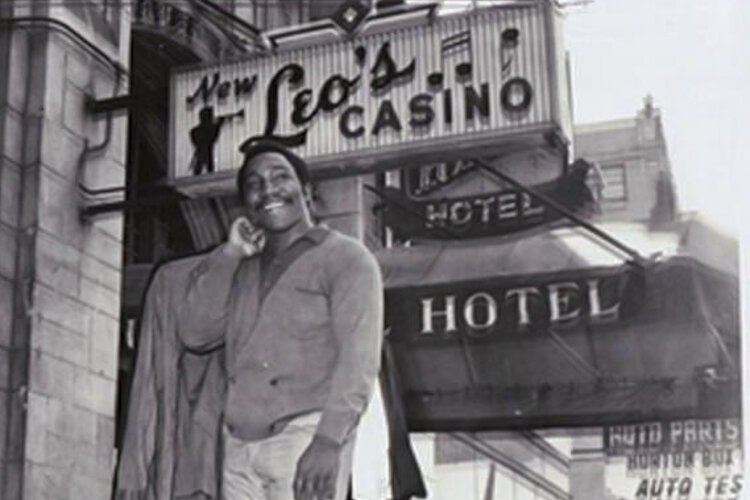 The Greater Cleveland Urban Film Festival is screening our documentary “Leo's Legacy” about the legendary music venue Leo’s Casino. Pictured is Eddie Levert of the O'Jays in front of the casino once located at 7500 Euclid Avenue from 1963 -1972.A free encore of “Leo’s Legacy”
The Greater Cleveland Urban Film Festival is screening our documentary “Leo's Legacy” about the legendary music venue Leo’s Casino. Pictured is Eddie Levert of the O'Jays in front of the casino once located at 7500 Euclid Avenue from 1963 -1972.A free encore of “Leo’s Legacy”
“Leo’s Legacy” tells the little-known story of a multicultural entertainment venue in Cleveland, Leo’s Casino, which was a testing-ground for Motown acts and a popular venue for leading Black entertainers in the 1960s and 70s—entertainers like Redd Fox, Otis Redding, and Dizzy Gillespie.
The Greater Cleveland Urban Film Festival and MidTown Cleveland will present a free encore screening will take place on Saturday, Feb. 20 at 12 p.m.
.
“I did not have the privilege of socializing across cultures in an entertainment venue like Leo’s Casino of the late 1960s and early 1970s,” says filmmaker Rev. Dr. Leah Lewis. “If such a place exists today, it might be the Agora [Theater and Ballroom] where I sometimes see a ‘rainbow coalition’ lining up for tickets and shows. Other than that, I have not known Cleveland as a great paragon of equity, inclusion, and diversity even where the joy of entertainment is involved.”
More impressive, then, is what Leo Frank and his early partner, Jules Burger, were able to cultivate at their club on Euclid Avenue. At the time, Leo’s held clubs and shops—a far cry from the big parcels of vacant land and institutional buildings seen today.
Frank's and Burger’s relationship with Berry Gordy, founder of Motown Records, made Leo’s one of the most important venues in a national circuit.
“Our documentary gives some insight into Cleveland’s place in America’s music history,” Lewis says. “It also reveals economic prowess and opportunity, and a true sense of community.”
Lewis hopes “Leo’s Legacy” is one more inspiration for the next generation of Cleveland musicians.
“The groups that have come out of Cleveland—the O’Jays, Bobby Womack, the Dazz Band, LeVert, and Bone Thugs-N-Harmony—our history is rich,” Lewis says. “Our youth have an opportunity to ponder their opportunity to build upon this legacy.”
Register for “Leo’s Legacy” and other Cleveland Urban Film Festival showings here.
"Leo's Legacy" is being screened as part of the Greater Cleveland Urban Film Festival and with the support of Midtown Cleveland, a recipient of a 2021 Cuyahoga Arts and Culture grant in the amount of $7,075.
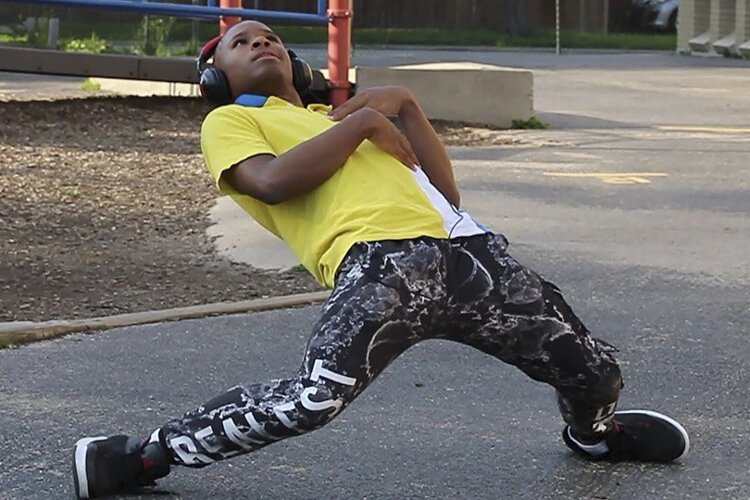 Karamu House is hosting an interactive online hip hop class with Samuel McIntosh of 10K Movement to celebrate Black History Month on Friday, Feb. 26.Hip hop with the 10K Movement at Karamu House
Karamu House is hosting an interactive online hip hop class with Samuel McIntosh of 10K Movement to celebrate Black History Month on Friday, Feb. 26.Hip hop with the 10K Movement at Karamu House
Karamu House is hosting an interactive online hip hop class with Samuel McIntosh of 10K Movement to celebrate Black History Month on Friday, Feb. 26.
"I don't teach Bboying [and] Breaking, I teach street, club, and hip hop dance culture,” says McIntosh.
He says his goal is to preserve, present and cultivate authentic street, club and hip hop dance culture.
“By doing this we create access to the art form and culture for those who may never be able to experience true hip hop culture in Cleveland” says McIntosh. “I teach because it was handed down to me to share from pioneers who trusted me with these tools. I teach because dance is a universal language and I know how powerful finding your own voice can be.”
Karamu House has received a grant from Cuyahoga Arts and Culture for general operating support in 2021 for more than $90,000.
Art in Our Midst: a virtual tour
In this period of self-quarantine and limited social gatherings, the Sculpture Center offers safe, outdoor, tangible art experiences in a self-guided tour, curated by Andrea Gyorody and Lo Smith.
The tour starts with one of Cleveland’s most iconic public sculptures, Free Stamp, by Claes Oldenburg and Coosje van Bruggen, and then moves through the city to lesser-known areas to showcase works that might not conform to traditional notions of sculpture.
“Unless you’re in the know, the histories of these works are often opaque,” the curators write. “The average visitor has little access to information about who commissioned and paid for them, what purposes they were intended to serve, and how they have changed, materially or contextually, in the years since they were first installed.”
“Art in Our Midst: Cleveland Outdoor Sculpture Reconsidered” offers an introduction to the city’s public art, which becomes a lens through which to understand the city itself, and all the many histories layered beneath the surface of what is visible.
Log on here for a map of the outdoor sculpture tour of Cleveland.
The Sculpture Center is a recipient of a 2021 Cuyahoga Arts and Culture grant in the amount of $16,624
